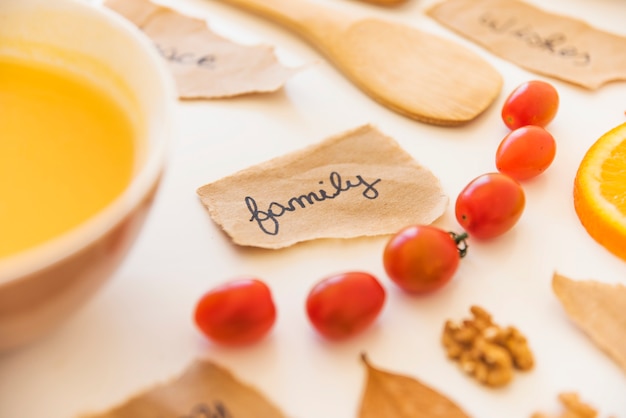
Being a mother is a full-time job, especially when it comes to looking after the rest of the family. For vegan or vegetarian mothers, it can seem even more challenging to get all the necessary nutrients since some key ones found in meat and fish aren’t present in plant-based foods. However, the good news is that a vegetarian diet can be perfectly healthy for both pregnant and breastfeeding mothers. The key is knowing the right nutritious foods to include. Here’s a guide to help you out.
1. **Blueberries**
Blueberries are packed with antioxidants. For breastfeeding moms, they’re great because they offer carbs for energy along with vitamins, potassium, and calcium. You can sprinkle them on cereal, yogurt, or blend them into smoothies to ward off oxidative stress.
2. **Avocados**
Avocados provide more potassium than bananas and also contain healthy fats, lutein, vitamin C, folic acid, and a high fiber content. They are excellent for boosting your energy levels.
3. **Yogurt**
Yogurt is a quick snack loaded with calcium, probiotics, magnesium, and vitamin B12. It helps vegetarian moms get a good dose of protein, vitamin C, D, and calcium.
4. **Brown Rice**
Brown rice is rich in carbs and helps maintain good milk quality during breastfeeding. It’s also full of vitamin B, potassium, copper, selenium, zinc, magnesium, and phosphorus, which support overall health.
5. **Nuts**
Nuts are a great source of vitamin E, healthy fats, magnesium, and fiber. They also help lower cholesterol, protect against heart disease, and improve blood vessel function thanks to their omega-3 fatty acids.
6. **Greens/ Veggies**
Dark leafy greens, like kale and spinach, are rich in fiber, vitamin C, folic acid, and calcium. They are essential for getting enough iron, which is crucial for vegan and vegetarian mothers.
7. **Legumes**
Beans, lentils, and peas are versatile and packed with nutrients like iron, magnesium, and folate. They’re also high in protein and fiber, with zero cholesterol, making them ideal for a healthy diet.
8. **Oats**
Oats are full of protein, fiber, and complex carbs. They help increase milk supply and provide lasting energy. They are also known for aiding weight management.
9. **Flax**
Flaxseeds and flaxseed oil are rich in fiber, essential fatty acids, and lignans. They help combat depression and are perfect for adding to smoothies, soups, or casseroles.
10. **Zinc**
Although not a food, zinc is essential but harder to find in plant-based sources. You can get it from pumpkin seeds, sesame seeds, whole grains, and fermented soy foods. Zinc is vital for both pregnant and lactating mothers.
11. **Whole Grains**
Quinoa and millet are good examples of whole grains that supply B vitamins, minerals, proteins, and fiber. Opt for minimally processed grains to retain as much nutrition as possible.
12. **Fermented and Cultured Foods**
Miso, pickles, and yogurt are examples of foods rich in beneficial bacteria. Nutritional yeast, high in protein and B vitamins, can also be added to various dishes.
13. **Blackstrap Molasses**
This sweetener is a rich source of magnesium, copper, potassium, calcium, iron, and chromium.
14. **Seeds**
Chia seeds, pumpkin seeds, and sunflower seeds are packed with minerals, essential fatty acids, protein, and fiber. They help fetal brain development and improve the health of lactating mothers.
15. **Oranges**
Rich in vitamin C, oranges support postpartum recovery and collagen production. They are critical for tissue repair and overall health.
16. **Seasonal Fruits**
Fruits provide lots of vitamins, minerals, and antioxidants, helping to heal wounds, boost energy, and keep vegan moms healthy.
17. **Garlic**
Great for increasing milk production, garlic also has antioxidant, anti-inflammatory, and antimicrobial properties, strengthening the immune system.
18. **Carrots**
Carrots provide essential carbs and potassium for energy. They are rich in vitamin A and beta carotene, which is good for both mother and child.
19. **Tofu**
Along with tempeh, tofu is an excellent meat substitute, offering 16-19 grams of protein per 100 grams. It provides calcium and iron and is great for replacing eggs and fish due to its nutrient profile.
20. **Seaweed**
One of the few plant sources that include essential fatty acid DHA, seaweed also provides potassium, iodine, antioxidants, vitamin B12, magnesium, and manganese.
In summary, a wide variety of fruits, vegetables, whole grains, seeds, and nuts can supply the necessary nutrients vegan and vegetarian mothers need. Through proper nutritional management, it’s entirely possible to thrive on a vegetarian diet, ensuring both mother and child remain healthy.